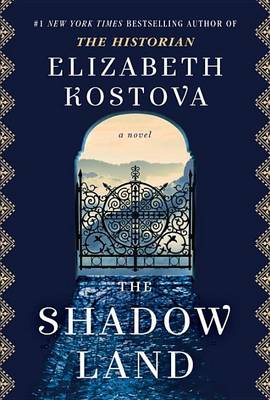
Terri M. LeBlanc
Written on Mar 31, 2017
Within two chapters, I was sucked into The Shadow Land. Within two days, I was 50% complete with a close to five hundred-page novel. The story, the characters and the scenery were magnificent. Kostova does a beautiful job describing the scents and sounds of Bulgaria. I could see, feel, hear and smell the country. By the end of the novel, I want to visit Bulgaria and experience it for myself. So score one for Kostova for taking me mentally to a country I never before considered visiting.
The story itself takes two paths. In the present we follow Alexandra, a troubled American travelling to Bulgaria for a teaching job when she is unexpectedly thrown into a life threatening situation. Her journey, from page one to the last, pulls her out of her shell and helps her to see life in a new light. Her journey and her forced reliance on strangers to complete her journey teaches a wonderful lesson. Sometimes we get wrapped up in our own problems and issues that we forget that others might be able to offer some comfort or share in an experience that will allow us to understand ourselves and/or the world better.
The second path is in the past following a doomed violinist in an Eastern-Bloc country post World War II. And I couldn’t help but compare this novel with The Last Lament and since both novels take place during a similar time period. For some reason, I have more of a connection to Stoyan’s story in The Shadow Land than Aliki’s story in The Last Lament.
Stoyan’s story is only told in the present tense as it happens to him. Perhaps this, coupled with the fact that Stoyan is an adult vs. Aliki’s being an adult reflecting back on the past provided a “real-time” connection with The Shadow Land. Stoyan understood more (or as much as you could during the Communist rule in eastern Europe) the implications of his actions or inactions at the time. There were also more breadcrumbs in the story to lead to the resolution of the mystery.
Only two things stand out as issues.
What was the point of Alexandra’s brother’s disappearance in the opening chapters?
The ending, compared to the rest of the book, was just a little perfect, somewhat lackluster and not as strongly written as the rest of the novel.
The book, as a whole, was well written as Kostova managed to pull me running through a rather lengthy emotional novel in less than a week. Since the rest of the story was so tightly woven, I was hoping for a bit more punch at the end.
This review was originally posted on Second Run Reviews

